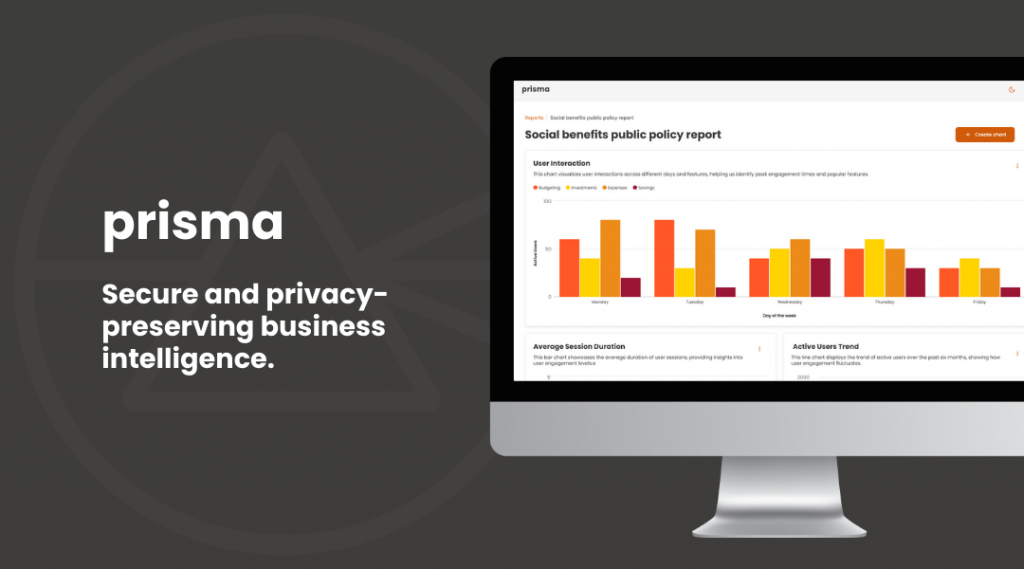Article 2 of the GDPR states that the regulation “applies to the processing of personal data wholly or partly by automated means and to the processing other than by automated means of personal data which form part of a filing system or are intended to form part of a filing system.” Article 3 adds that the regulation applies to the activities of a controller or processor in the European Union regardless of whether the processing takes place in the Union or not. It also applies to the processing of personal data associated with people who are in the Union from controllers or processors that are not in the Union if it is related to the offering of goods and services to the data subject and/or monitoring of the data subjects’ behavior (as long as it takes place in the Union). Article 4 clearly defines “personal data” as “any information relating to an identified or identifiable natural person,” including but not limited to “name, an identification number, location data, an online identifier or to one or more factors specific to the physical, physiological, genetic, mental, economic, cultural or social identity of that natural person.”
Article 9 presents special categories of personal data, also referred to as sensitive data, which are prohibited from being processed, including “personal data revealing racial or ethnic origin, political opinions, religious or philosophical beliefs, or trade union membership, and the processing of genetic data, biometric data for the purpose of uniquely identifying a natural person, data concerning health or data concerning a natural person’s sex life or sexual orientation.”
Although the GDPR provisions stronger protections for sensitive data, it is always a good reminder that the GDPR applies to personal data, regardless of whether it is sensitive or not.
All of the above shows that the GDPR applies to debt collectors in the European Union – EU (as well as in the European Economic Area – EEA) and to debt collectors around the world handling data of EU residents. However, the discussion so far is established from the perspective of protecting the privacy of natural persons. Secure and privacy-preserving data-centric solutions can do much more for debt collectors, as we will see next.
This is the first article of a series of three. We start by discussing how security and privacy work hand in hand to protect the interests of debt collectors while observing the privacy rights of data subjects.
Protecting the Interests of Debt Collectors
Each and every debt collector in the EU/EEA must seek compliance with regulations that aim to protect the rights of data subjects. The combination of security and privacy can help organizations achieve this goal while fulfilling their institutional and commercial interests. This is where advanced analytics solutions powered by Privacy-Enhancing Technologies (PETs) shine since they protect confidential, personal, and sensitive information and provide a wide range of insights that can revolutionize debt collection practices. In this blog post, we explore what secure and privacy-preserving analytics solutions are, why they are essential for debt collectors, and how they can deliver numerous benefits.
Here are critical insights that debt collectors can obtain with PET-based advanced analytics, leading to substantial improvements in their operations.
Targeted Collection Strategies
Through historical debt collection data analysis, debt collectors can identify trends and patterns related to payment behaviours. This insight allows them to tailor collection strategies for different debtor profiles, increasing the likelihood of successful recoveries.
For instance, through advanced predictive analytics, it is possible to discover that debtors in a specific age group tend to respond better to certain collection strategies or that debtors with outstanding medical bills are more likely to make payments when offered flexible repayment plans. With these insights, debt collectors can tailor their approaches, such as adjusting their communication style or offering customised repayment options based on debtor profiles, increasing the chances of success and reducing the need for generic and less effective collection tactics.
When placing data protection and regulatory compliance at the forefront of their operations, debt collectors can confidently analyze historical debt collection data and debtor profiles, enabling them to tailor their collection strategies with enhanced precision. This strategic approach heightens the prospects of successful debt resolution and ensures the secure handling of sensitive financial information. Debt collectors who embrace this proactive stance towards security and privacy mitigate the risk of regulatory infringements and data breaches and cultivate trust among creditors and debtors, facilitating a positive standing within the industry. In essence, the fusion of insights about targeted collection strategies with rigorous security and privacy protocols represents a mutually beneficial strategy, yielding improved outcomes in debt recovery while steadfastly upholding the highest data-safeguarding standards and regulatory adherence.
Employing secure and privacy-preserving targeted collection strategies is not only ethically responsible but also economically advantageous, as it maximises debt recovery rates while mitigating the risk of costly privacy breaches or regulatory fines.
Predictive Scoring Models
Supported by the strategic exploration of advanced analytics, debt collectors can develop predictive scoring models to assess the likelihood of a debtor paying off their debt. This enables agencies to prioritize collections efforts on accounts with the highest probability of resolution.
Consider an example where a debt collection agency can assign scores to individual accounts based on the likelihood of successful debt resolution by employing predictive scoring models. In this way, the model might give a high score to an account if the debtor has a history of consistently paying off debts in similar situations. With this insight, the agency can prioritise accounts with higher scores, focusing its resources on those more likely to yield positive results. This approach helps maximise recovery rates while minimising the time and effort spent on accounts with a lower payment likelihood, improving operational efficiency.
By leveraging advanced analytics capabilities while safeguarding the utmost confidentiality of sensitive debtor information, debt collectors are poised to make substantially more informed decisions regarding the prioritisation of accounts for collection efforts. This augments the efficiency of debt recovery initiatives and significantly mitigates the risk of mishandling personal financial data. In an arena where adherence to regulatory standards takes precedence, these secure predictive scoring models establish a resilient framework, enabling debt collectors to deftly navigate the intricate landscape of debt collection laws and regulations, concurrently optimising their prospects of achieving successful debt resolution. The ultimate outcome is a harmonious scenario in which debt collectors can attain heightened recovery rates, curtail operational expenditures, and consistently uphold the trust of debtors and regulatory authorities through their unwavering dedication to data security and privacy.
Implementing secure and privacy-preserving predictive scoring models is not just a compliance necessity but a strategic choice that boosts financial performance by focusing resources on high-resolution probability accounts, reducing operational costs, and enhancing revenue generation.
Optimal Contact Timing
Debt collectors can determine the best times and channels to contact debtors through historical data analysis. This minimises wasted efforts and increases the chances of successful communication.
Analysis of past interactions might reveal that debtors are more responsive to communication during certain times or days of the week. With this knowledge, debt collectors can schedule their outreach strategically, ensuring they make contact when debtors are most likely to engage. This reduces wasted efforts and enhances the chances of successful communication, ultimately contributing to higher recovery rates and a more efficient debt collection process.
Through the meticulous analysis of historical data, while meticulously preserving privacy, debt collectors gain the ability to precisely identify optimal times and communication channels to engage with debtors effectively. This strategic methodology not only bolsters the prospects of fruitful communication but also effectively diminishes the hazards related to privacy infringements or data breaches. Debt collectors prioritising security and privacy compliance together cultivate trust among creditors and debtors, elevating their stature and credibility within the industry. Moreover, the capacity to establish secure and privacy-conscious contact-timing strategies guarantees unwavering adherence to stringent regulatory prerequisites, thus reducing the potential for legal complications and associated fines. Integrating security and privacy considerations into contact timing optimisation empowers debt collectors to ascend to higher operational efficiency, debt recovery efficacy, and compliance, ultimately yielding enhanced operational outcomes and bolstering industry trust.
Strategically optimising contact timing with a security and privacy focus is a financially prudent decision, minimising operational inefficiencies, reducing legal risks, and maintaining a positive reputation that can lead to increased debtor cooperation and successful debt resolution.
Conclusions
Adopting secure and privacy-preserving analytics solutions marks a transformative leap forward for debt collectors, offering distinctive benefits and opportunities. Beyond regulatory compliance, these solutions empower debt collectors to harness their data’s full potential while safeguarding sensitive information’s confidentiality. Through targeted collection strategies, predictive scoring models, optimal contact timing, and various other insights, debt collectors can improve efficiency, enhance recovery rates, reduce operational costs, and foster stakeholder trust. By adhering to stringent security and privacy standards, debt collectors mitigate legal risks and cultivate a positive reputation, reinforcing their credibility within the industry. These innovative technologies not only bolster the bottom line but also set the stage for a new era of responsible and effective debt collection underpinned by the principles of data protection and ethical practices. In the ever-evolving landscape of debt collection, embracing secure and privacy-conscious analytics solutions is no longer an option but a strategic imperative that paves the way for long-term success.
Stay tuned for the second part of this series.
To learn more about how we are empowering next-generation debt collection in the real world, check out how Algemetric has enabled Inkasso MOMENTUM to elevate their debt collection success:
https://www.algemetric.com/collection-success-reports-for-inkasso-momentum/



